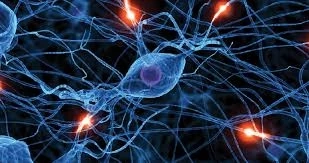The Bioelectric Medicine market is projected to grow from USD 24,495.23 million in 2023 to USD 32,095.23 million by 2032, at a compound annual growth rate (CAGR) of 6.56%.The bioelectric medicine market is a rapidly evolving sector within the broader medical industry, driven by advancements in technology and an increasing understanding of the role electrical stimulation can play in treating a variety of conditions. This field merges principles from biology and electrical engineering to develop innovative therapies aimed at managing and curing diseases. In this article, we\'ll explore the key drivers, current trends, challenges, and future outlook of the bioelectric medicine market.
Browse the full report at https://www.credenceresearch.com/report/bioelectric-medicine-market
Key Drivers of the Market
1. Technological Advancements: Recent developments in bioelectronics have propelled the growth of the bioelectric medicine market. Innovations in implantable devices, neuromodulation technologies, and bioelectronic sensors have made it possible to design more effective and less invasive treatments. For example, advancements in neurostimulation devices have improved the management of chronic pain and neurological disorders.
2. Rising Incidence of Chronic Diseases: The prevalence of chronic conditions such as diabetes, Parkinson\'s disease, and epilepsy has spurred demand for bioelectric medicine solutions. These conditions often require long-term management, making bioelectronic therapies an attractive option due to their potential for continuous, targeted treatment.
3. Increasing Aging Population: The global aging population is another significant driver. As people live longer, they are more likely to experience age-related health issues that can benefit from bioelectric medicine. This demographic shift is fueling the demand for technologies that can improve quality of life and manage age-related ailments effectively.
4. Growing Awareness and Acceptance: There is an increasing awareness of bioelectric medicine among patients and healthcare providers. Improved patient education and acceptance of new technologies have contributed to the market\'s expansion. As more people become aware of the benefits and availability of bioelectronic therapies, the demand for these solutions continues to grow.
Current Trends
1. Development of Advanced Neuromodulation Devices: Neuromodulation, which involves altering nerve activity through targeted electrical stimulation, is a prominent trend in bioelectric medicine. Devices such as deep brain stimulators and spinal cord stimulators are becoming more sophisticated, offering improved outcomes for conditions like depression and chronic pain.
2. Integration of Artificial Intelligence (AI): AI is increasingly being integrated into bioelectronic devices to enhance their functionality. AI algorithms can optimize stimulation parameters, predict patient responses, and personalize treatment plans, leading to more effective and individualized therapies.
3. Emergence of Non-Invasive Technologies: There is a growing focus on developing non-invasive bioelectronic therapies. Techniques such as transcranial magnetic stimulation (TMS) and transcranial direct current stimulation (tDCS) offer alternatives to traditional invasive procedures, providing patients with safer and more comfortable treatment options.
4. Increased Investment and Research: Investment in bioelectric medicine research is on the rise, with both public and private sectors funding studies aimed at discovering new applications and improving existing technologies. This increased investment is driving innovation and accelerating the development of novel bioelectronic solutions.
Challenges Facing the Market
1. Regulatory Hurdles: The bioelectric medicine market faces significant regulatory challenges. Navigating the complex regulatory landscape for medical devices and ensuring compliance with stringent standards can be time-consuming and costly. This can impact the speed at which new technologies reach the market.
2. High Costs of Development: Developing bioelectric medicine technologies involves substantial research and development costs. The high cost of innovation can be a barrier to entry for smaller companies and may limit the affordability of new therapies for patients.
3. Limited Awareness and Adoption: Despite growing awareness, there is still a need for increased education about bioelectric medicine among both healthcare providers and patients. Limited understanding of these technologies can hinder their adoption and integration into standard treatment protocols.
Future Outlook
The bioelectric medicine market is poised for significant growth as technology continues to advance and the understanding of bioelectronic therapies deepens. The future of this market will likely be characterized by increased innovation, more personalized treatments, and greater integration of AI and non-invasive technologies. Additionally, as regulatory and cost barriers are addressed, the accessibility and adoption of bioelectric medicine are expected to improve, making these therapies more widely available to patients around the world.
Key player:
- Medtronic
- Abbott
- Boston Scientific Corporation
- Cochlear Ltd.
- LivaNova PLC
- Biotronik SE & Co. KG
- electroCore, Inc.
- Sonova
- Nevro Corp.
- Stimwave LLC
Segments:
By Product
- Implantable Cardioverter Defibrillators
- Cardiac Pacemakers
- Cochlear Implants
- Spinal Cord Stimulators
- Deep Brain Stimulators
- Transcutaneous Electrical Nerve Stimulators
- Sacral Nerve Stimulators
- Vagus Nerve Stimulators
- Other
By Type
- Implantable Electroceutical Devices
- Non-invasive Electroceutical Devices
By Application
- Arrhythmia
- Pain Management
- Sensorineural Hearing Loss
- Parkinson’s Disease
- Tremor
- Depression
- Treatment-resistant Depression
- Epilepsy
- Urinary and Fecal Incontinence
- Others
By End-use
- Hospitals
- Others
By Regional
- North America
- US
- Canada
- Europe
- Germany
- UK
- France
- Italy
- Spain
- Asia Pacific
- China
- India
- Japan
- Australia
- South Korea
- Latin America
- Brazil
- Mexico
- Argentina
- MEA
- South Africa
- Saudi Arabia
Browse the full report at https://www.credenceresearch.com/report/bioelectric-medicine-market
About Us:
Credence Research is committed to employee well-being and productivity. Following the COVID-19 pandemic, we have implemented a permanent work-from-home policy for all employees.
Contact:
Credence Research
Please contact us at +91 6232 49 3207
Email: sales@credenceresearch.com
Website: www.credenceresearch.com


